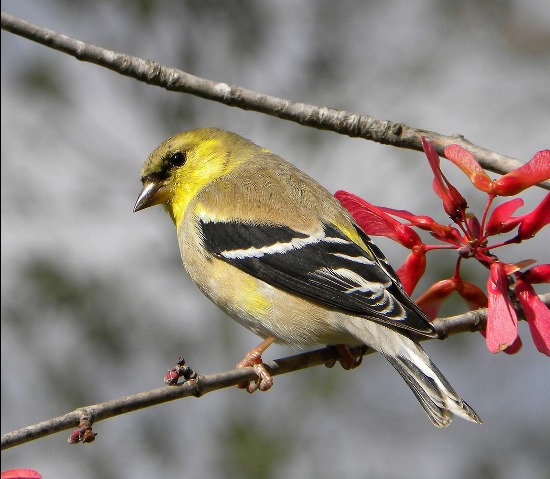Pets are important beings in our lives, and if you have been living with them for quite some time, you would realize that their role is more than just entertainment animals you get in the market—they are part of the family. Many people have different choices as far as pets are concerned—we, for this article, will talk about parrots, which are pretty adjustable creatures with a longstanding history with humans.
Parrots are extremely popular pets, especially among south-east Asian countries. They are docile, amenable to learning and respectful of human emotions. However, despite all the advantages of having a parrot, there are certain things you should keep in order to help your parrot grow into a fine and adorable pet.

In this article, we are going to talk about 5 facts you should know about parrot-petting. So, without further ado, let us begin.
-
A good diet is so important!
Yes, the first and foremost requirement about parrot-petting is ensuring a healthy and balanced diet for parrots. Many times you would read that new bird owners indiscriminately get hold of a pouch of bird pellets and throw them as food—this will not help, at all! In fact, insufficient nutrition can lead to many problems to parrots such as strain, vitamin deficiencies, stunted feather growth and other illnesses.
A typical pellet food for a parrot should include 50 percent of seed and pellet food and remaining part supplemented food. Talking about supplemented food, you can serve fruits, table scraps, cooked eggs, meats, nuts or vegetables. Do not serve a whole apple or hung down carrots.
Remember this that young parrots find it difficult to eat big-sized food and, thus, you should grind whatever food you serve into smaller pieces which could be easily consumed without harm.
Take note that alcohol, chocolate, salt, avocado or anything comprising of caffeine is perilous to your parrot. Moreover, household items can also be toxic to these frail creatures.
-
Grooming is needed as much you need it
We need to keep grooming ourselves regularly—while we do it mostly for aesthetic purposes, but there are underlying health implications which may arise if we do not. The same logic applies to pets, especially quacker parrots. These creatures might be tiny and mindful, but they need your attention over a number of matters.
You need to do a couple of things. Let us start with nails which you must trim regularly. Get hold of a regular clipper for using on small birds, but scissor-style clippers are recommended for bigger birds. Carefully trim the edges of the nail.and do not be hasty about this: the edges are sensitive since they house nerve endings and may result in bleeding if the cutis deep.
If you cannot do the clipping job without hurting your love, then do not do it at all. Instead, get thehelp of a professional groomer (yes, there are people like them!) or an avian veterinarian.
Now, the beak! Yes, the beak needs attention too since it may be vulnerable to daily wear and tear due to many activities the bird is engaged in such as playing, feeding or climbing. In case you notice that the beak is having an outgrowth or any distortion, then you should hurry up and get your parrot to a vet. Do not be too inspired by Medical Dramas and start behaving a vet yourself!
Wings are delicate parts of a parrot, and humans are most careless with them. Many owners clip the wings to prevent parrots from flying away. If you wish to take this road, you need to think about it since clipping feathers gravely affects the balance and flight of the bird. So, if at all you wish to clip them off, then take your pet to a professional instead.
Lastly, about bathing it is. Parrots bath in shallow water or rain showers. You might consider including an area with shallow water inside the cage for convenience, or you can simply spray water onto the bird. Take special care about the quality of water—do not use dirty water to bathe your loved ones, and do not add oils or soaps.
-
What about social life?
You thought only dogs and guinea pigs need friends to spend time with? Well, no, even parrots need a social circle. Parrots can be real attention-seekers at times, especially when you ignore them continuously. Thus, you need to spare some time for your bird otherwise it might beak into your face!
The parrot cage’s placement is also essential. It is recommended you place the cage in an area where there is human activity and where parrots can be heard or attended to. However, do not put parrots in highly noisy and crowded places—they hate too much of anything. Keep the cage off direct sunlight and under optimal temperature.
One really important thing to note: the space of the cage must not be compromised with. Parrots require sufficient space to spread their wings and for tail and head clearance. The width of the cage should be more than the height and do not keep the cage near a kitchen if you do not want a sick parrot the next day.
-
Selection of the species
There is a huge range of parrots for consideration: Lovebirds are small and relatively quiet and mindful, and this makes them best for small and compact houses; then there are larger species such as African Grey parrot.
While selecting the species, do not forget that a few of them actually outlive humans; so, you will anyway have to make arrangements for the future. The price varies with each species so you will have to consider your budget too.
-
Parrots hide away their illnesses quite smartly
Birds have the disposition to hide their illnesses in order to avoid getting targeted by their predators. However, there are certain signs which may help you get a fair idea of the condition of the bird: change in diet, behavioral changes, changes in fecal substance, puffed up feathers and erratic sleeping patterns are some of the many signs.











